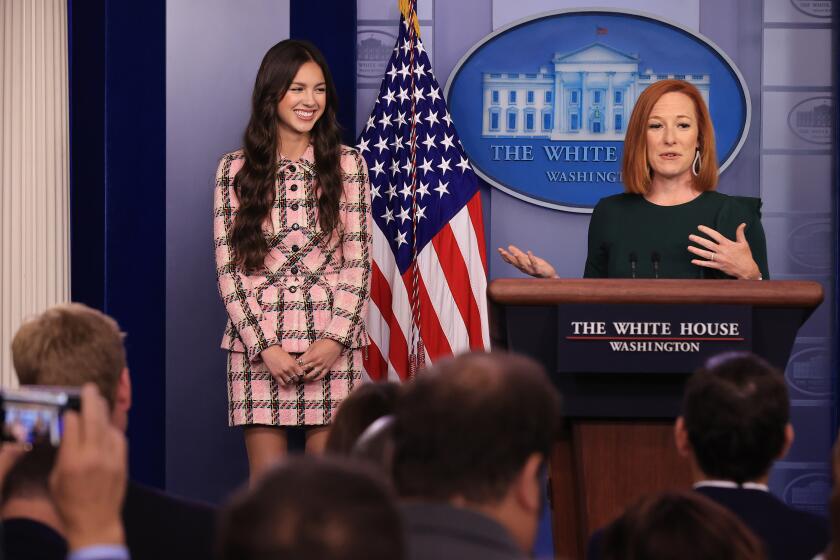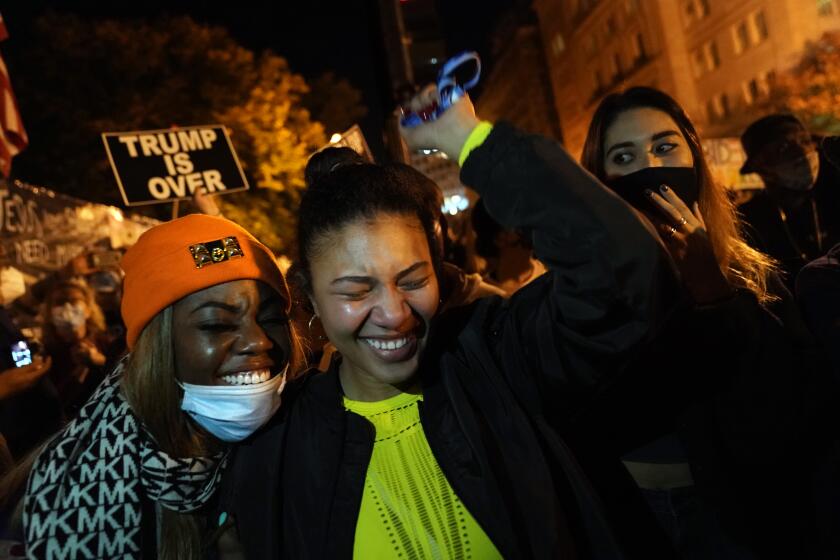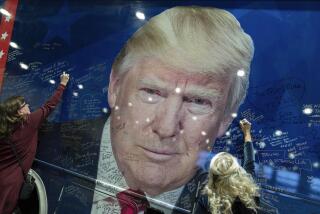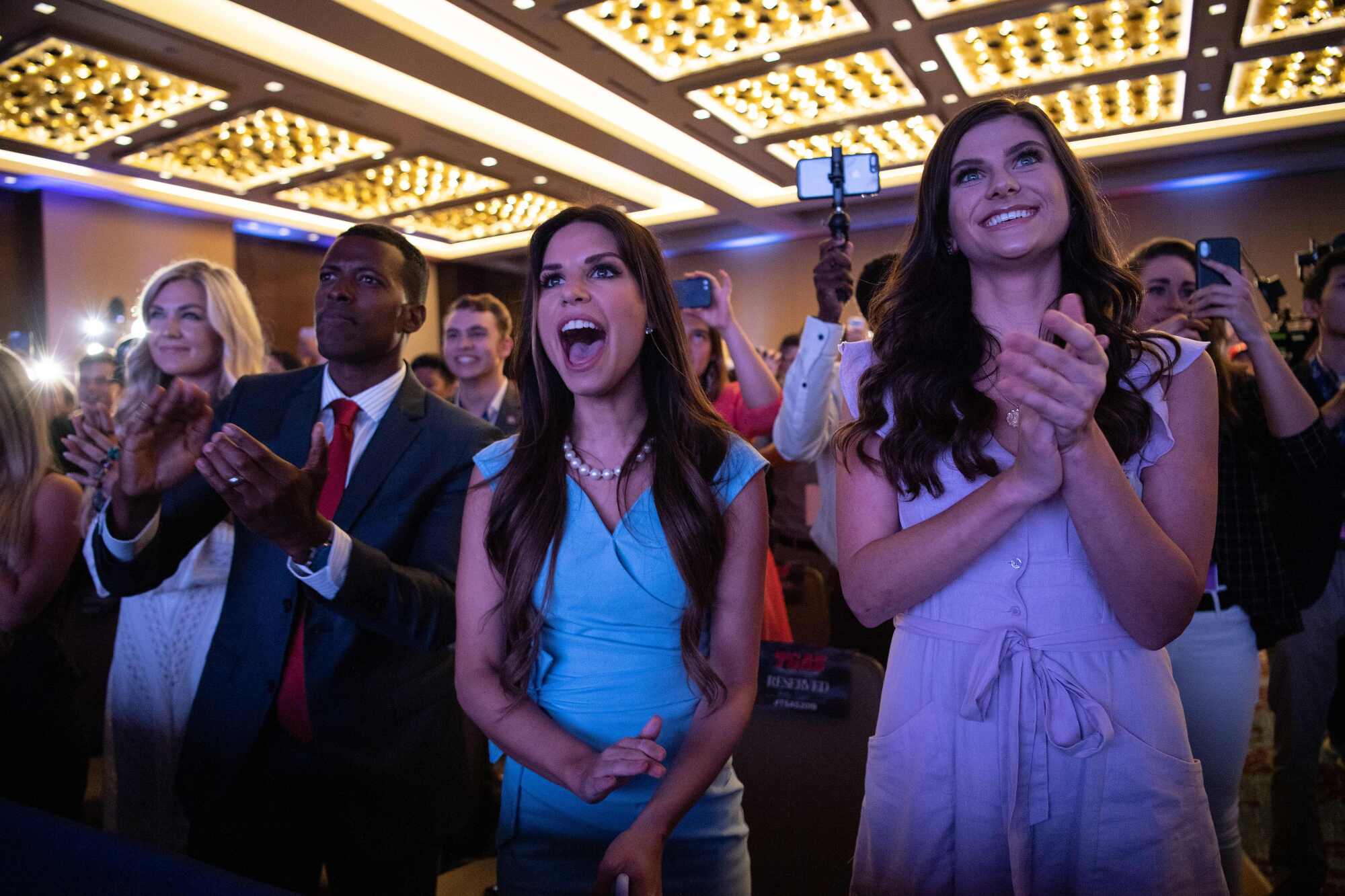
WASHINGTON — Republicans are on the losing end of one of the biggest demographic shifts of the last 20 years: A growing generation of young people — millennial and Generation Z voters — have turned to the left and thrown in their lot with the Democratic Party.
Swimming against the tide, Republicans are courting young conservative voters in hopes of narrowing the yawning gap between the parties, even if they have little hope of eliminating it.
“No doubt about it, it is going to be an uphill battle with young people,” said Andrew Kolvet, spokesman for Turning Point USA, a student-oriented conservative group that has just launched a livestreaming platform. “But there is budding optimism on the conservative side. We are finally starting to fight back.”
Republicans are at a big disadvantage: Democrats in 2020 won young voters’ support by about 25 percentage points, in part because a majority of the generation believes progressive policies best address their economic needs. Anti-immigrant rhetoric from GOP leaders, coupled with support by white nationalists, didn’t help with the most racially diverse generation in U.S. history: About 45% of millennials (those born between 1981 and 1996) and nearly half of Gen Zers (those born after 1996) are people of color, compared with 30% of baby boomers.
Hostility to Donald Trump has been a powerful political motivator driving a surge of turnout and activism among progressive young people. But Trump also helped bring new conservative voters to politics, including young people who responded to his antiestablishment message.
“Trump definitely does have an influence in Republican politics, more positive than negative,” said Elora Moolenaar, 22, a San Diego native who is a youth coordinator for GOP Virginia gubernatorial candidate Glenn Youngkin. “He’s created a lot of excitement. Before 2015-16, young people weren’t interested in politics — until Trump came along.”
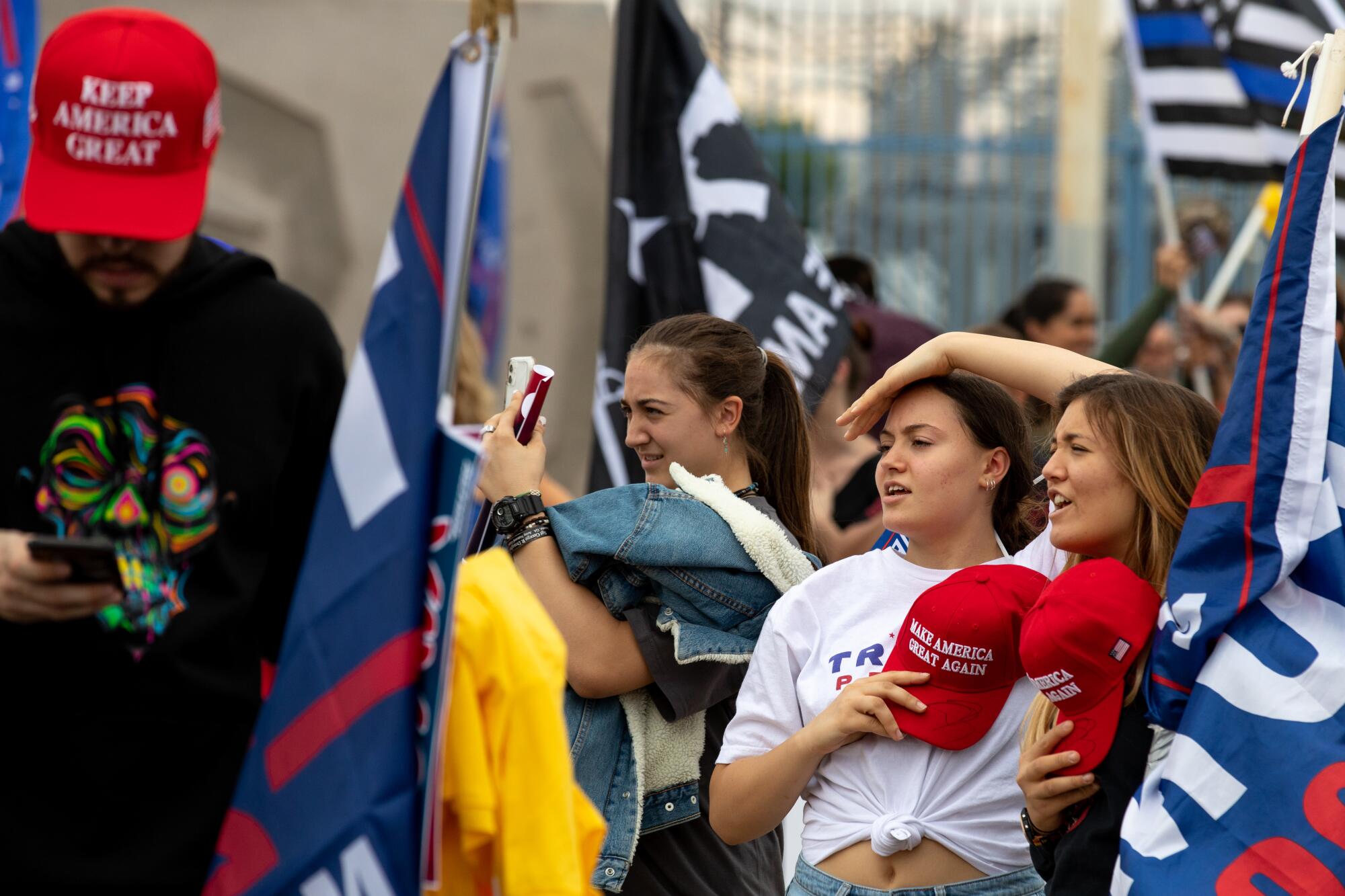
Turning Point USA, founded in 2012, got a big boost during the Trump era. Some of its events now draw thousands of high school and college students from around the country — up from attendance in the hundreds before Trump.
But not all the young people being drawn to the GOP are Trump loyalists. In fact, polls suggest that millennial and Gen Z Republicans are more moderate than older Republicans on many issues and identify less with Trump.
The Republican National Committee is building on a campus organizing program it set up during the 2020 campaign, which it says was the largest college program the party has run in recent years.
“The RNC remains committed to expanding our inroads with the next generation of voters and reminding them that Republicans are fighting for their futures,” said spokesperson Emma Vaughn.
The party is recruiting college and high school students for a field program to prepare them for organizing in the 2022 midterm.
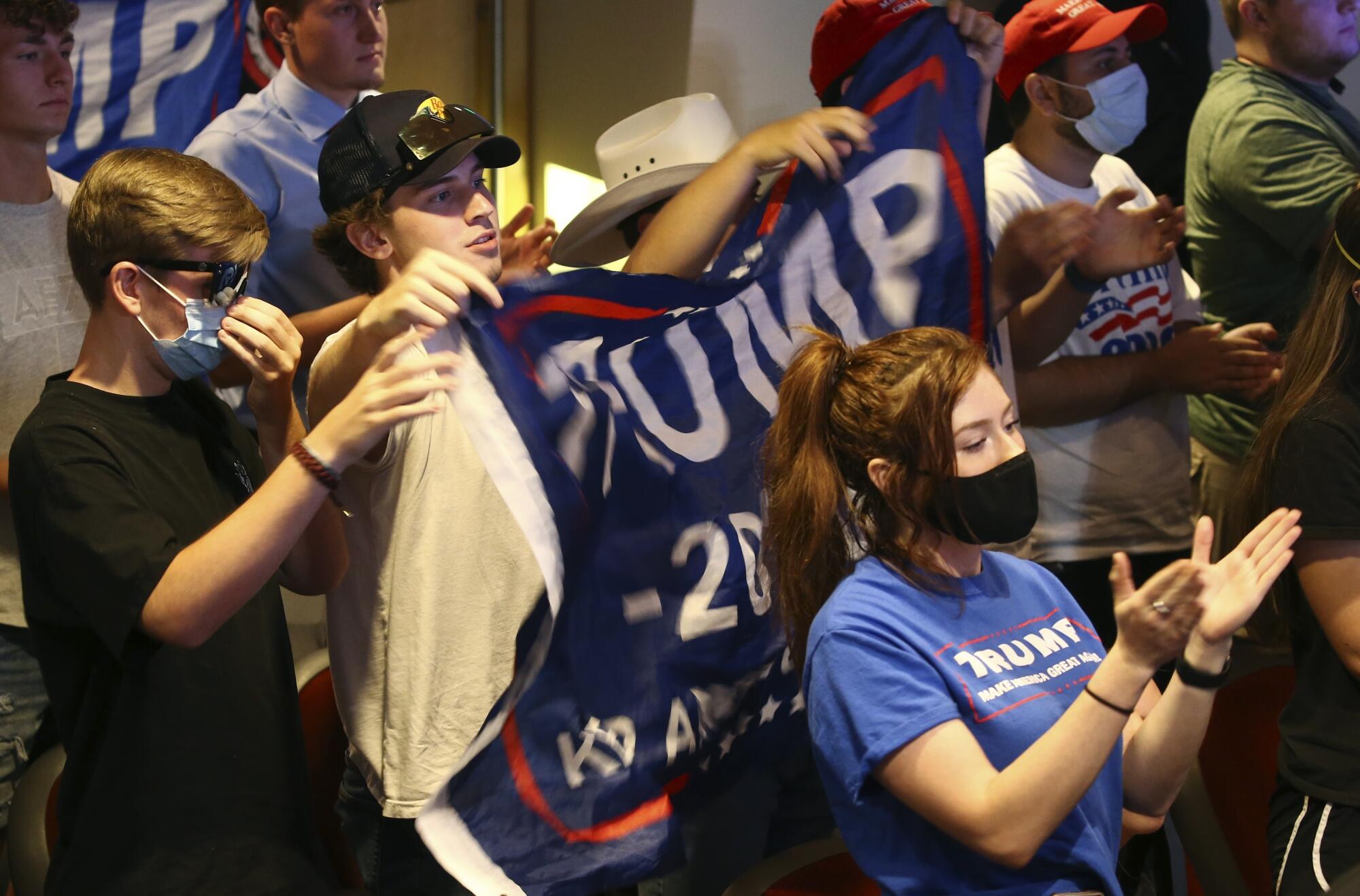
Republicans were encouraged when Trump in 2020 won a surprisingly large share of the Latino vote, including young people — many drawn to his culturally conservative message, such as his opposition to abortion.
Enrique Govea Jr., a 26-year-old student at San Jose State University who is active in Young Americans for Liberty and Turning Point USA, grew up in the liberal Bay Area and was surprised to find himself gravitating toward conservatives when he went to college. He began to be more interested in politics after Trump was elected, even though he had mixed feelings and did not initially support Trump as a candidate.
The Power of Youth
This is the third story of a three-part series on the effect of millennial and Generation Z voters on the Democratic Party, President Biden and the GOP.
Read the rest of the series:
Young voters turned out in force for Democrats in 2020. Will they stick around?
Biden is the oldest president in American history. Here’s how he aims to bridge a canyon-sized generation gap
“I like that he is bold and speaks his mind,” said Govea, who is majoring in political science and plans to work in the California Assembly after he graduates. “He says the quiet part out loud.”
Some Republicans are hopeful that their standing with millennial and Gen Z voters will improve over time, based on the common assumption that voters get more conservative as they age. However, polling indicates that millennials are not drifting rightward. Polling by the nonpartisan Pew Research Center found that the share of millennials who said they have “mostly liberal” or “consistently liberal” views grew to 57% in 2017 from 41% in 2004.
In the 2020 presidential election, as turnout of young voters surged, Trump won 36% of the under-30 vote. That was 24 percentage points less than Biden, who was nearly 78 and no teen idol. Congressional Republicans did even worse: House GOP candidates drew 31% of the under-30 vote.
Joe Biden, the oldest president in history, depended on young voters to win in 2020. Can he keep their support?
Republicans have not always been at such a disadvantage with young voters. In 1994, the GOP share of the young vote for House candidates peaked at 51%. In 2000, the parties were essentially tied among under-30 voters in the presidential contest between Republican George W. Bush and Democrat Al Gore.
The young vote starting tilting decisively in Democrats’ favor in the 2004 presidential election, when young people tended to be against the Iraq war; John F. Kerry won 54% of the under-30 vote. Then came the Great Recession, which was a formative economic experience for millennial voters and soured many on Republican economic policies.
David Winston, a Republican pollster, said his party has been at a growing disadvantage among millennials because it has not put forth clear solutions to their economic woes. Instead, he said, the party has focused too much on demonizing Democrats’ proposed solutions.
His advice to fellow Republicans: “Don’t tell younger voters why the other side is awful; define what your value would be to them.”
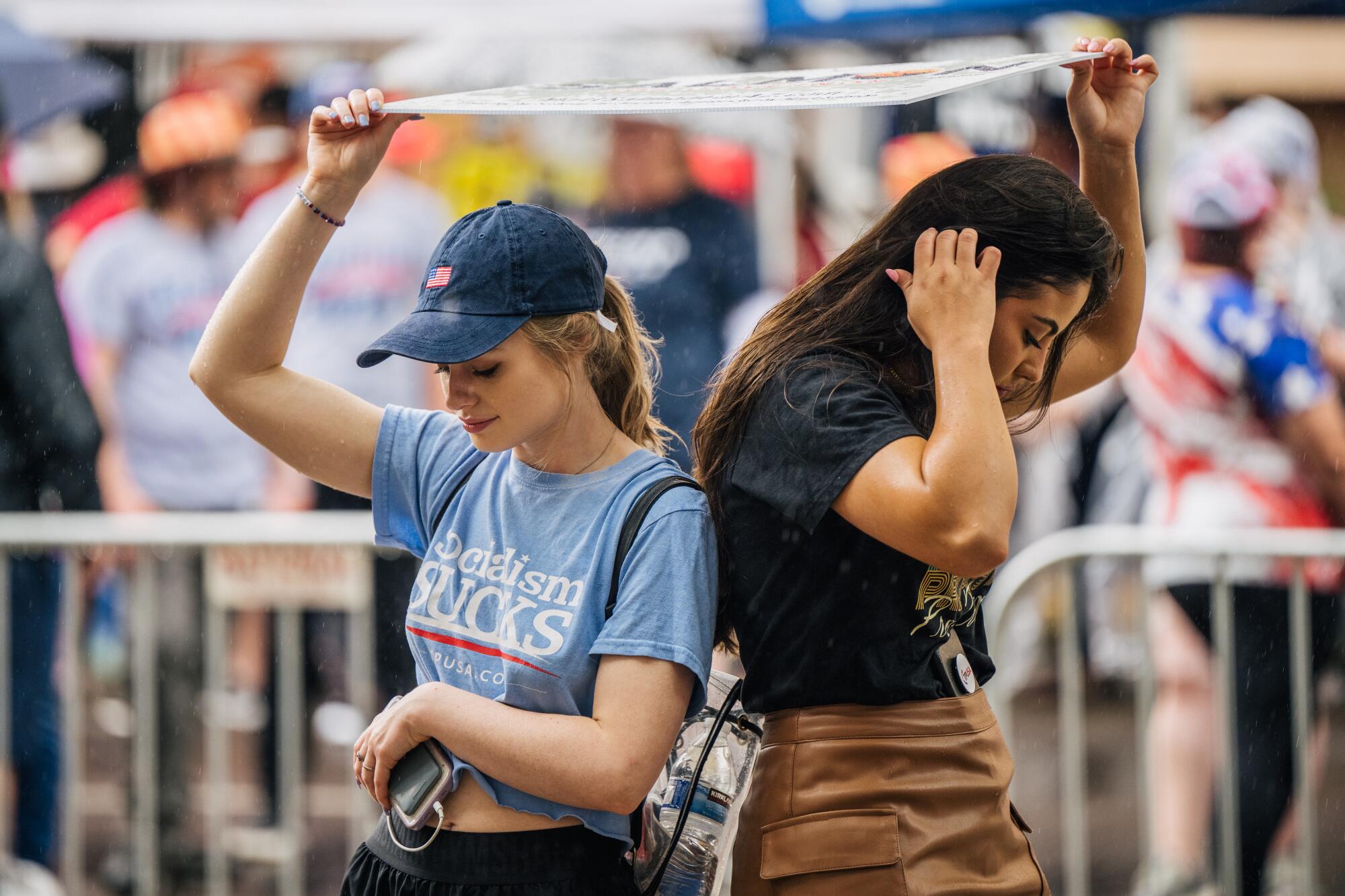
Moreover, a postelection poll by Tufts University’s civic engagement center suggests that the GOP has fallen short in getting its message out to young voters: It found that 48% of young people had been contacted by the Biden campaign or the Democratic Party, compared with 31% who heard from the Trump campaign or the GOP.
Like all voting groups, today’s young Republicans are not monolithic. GOP activists tend to be ardent Trump fans, embracing some of the more contentious strands of Trumpism. The California College Republicans generated controversy in the summer when it invited Rep. Paul Gosar (R-Ariz.), a Trump supporter who had associated with a Holocaust denier and white supremacists, to speak at a convention.
A diverse generation of young voters, who will be crucial in 2022, have been galvanized more by issues than candidates.
But a large share of young Republicans are less bound up in Trumpism.
To track Trump’s influence on the GOP, Wall Street Journal-NBC News polls in recent years have asked Republicans whether they identify more with Trump or with the Republican Party. In a September 2020 poll, more than half of all Republicans said they identified more with Trump than with the party, but among Republicans younger than 35, just 36% identified more with Trump.
Young Republicans tend to be more moderate on policy than their elders on key issues. A 2020 poll by the Pew Research Center found that young Republicans were more inclined to believe that human activity plays a big role in climate change: 29% of millennial and Gen Z Republicans believe that, compared with 16% of baby boomer and older Republicans.
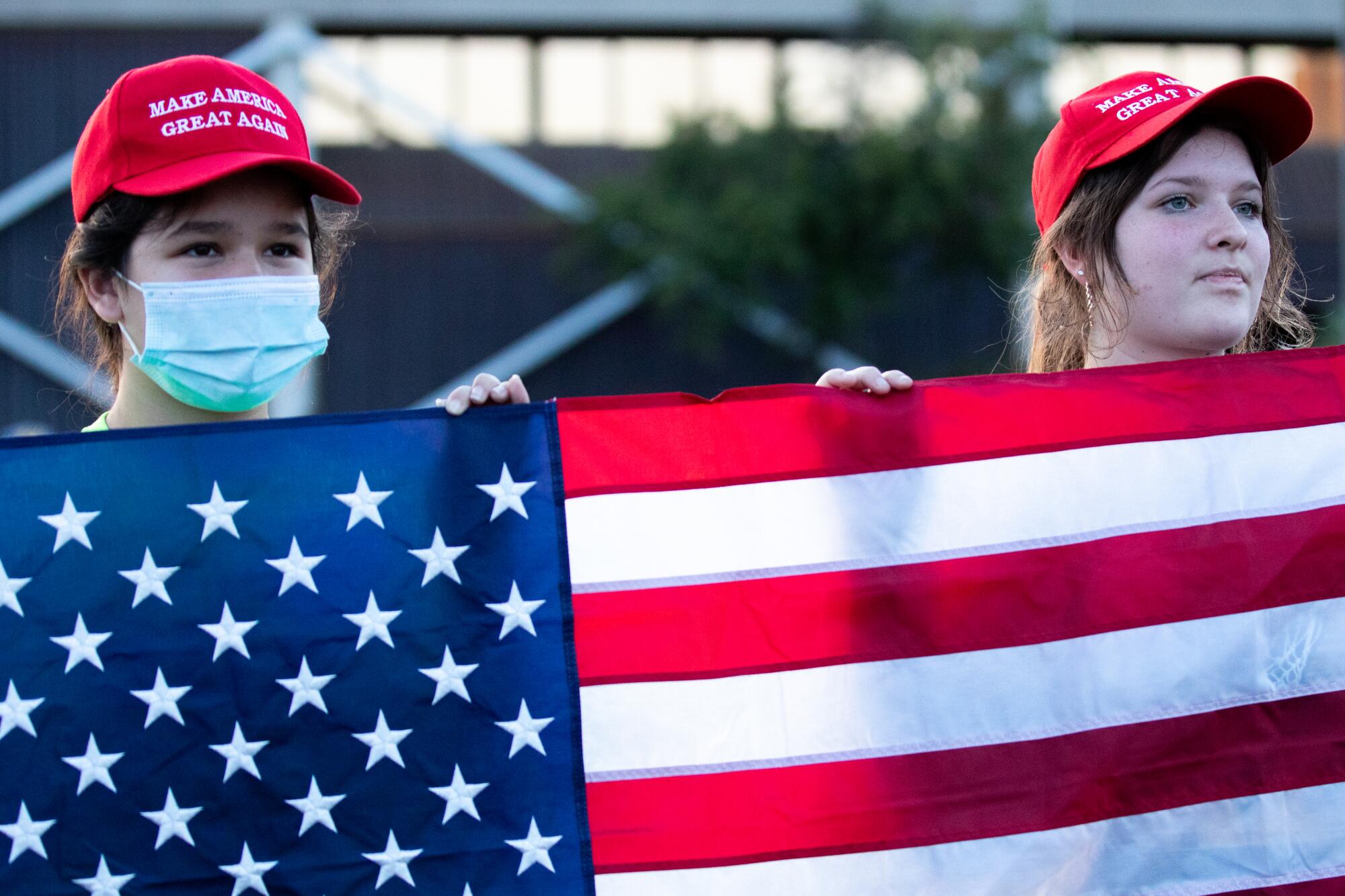
And in another 2020 report, Pew said younger Republicans see more racial injustice than their elders: 43% of Gen Z Republicans believe Black people are treated less fairly than whites, compared with 20% of baby boomer Republicans.
GOP pollster Whit Ayres said a perception that Republicans are intolerant is a big obstacle to reaching millennials.
“Any message that sounds intolerant of diversity and intolerant of people who are not white is a nonstarter with the vast majority,” he said.
Ayres, a 70-something lifelong Republican, has a ringside seat on the partisan generation gap facing the GOP. He has five millennial children, ages 28 to 38; none identify as Republican.
“The fact that so few millennials are willing to identify as Republicans is very concerning for the long-run health of the party,” Ayres said.
More to Read
Get the L.A. Times Politics newsletter
Deeply reported insights into legislation, politics and policy from Sacramento, Washington and beyond. In your inbox three times per week.
You may occasionally receive promotional content from the Los Angeles Times.
